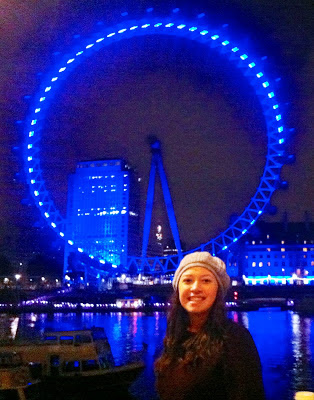Yesterday we held an online information session with several dozen prospective candidates who asked excellent questions.
We know that not everyone can attend these sessions and that many would like to know what was discussed.
We recorded most of yesterday's session, including the meaty Q&A that touched on some very important issues: the statement of purpose, letters of recommendation, language requirements, the analytical essay, among others.
If you are interested in listening to a recording of the session and seeing the questions that were sent in via chat, please send us an email at admissions@jhubc.it, and we will send you the relevant URL.
After you've clicked on the URL, you should try to open the Adobe Connect session as a "guest". If you have any problems, please send us an email at admissions@jhubc.it.
Click here to see the slide deck we reviewed together during the session.
One very important question was asked: Does it make a difference which box I check when I'm asked if I'd like to start my SAIS studies in DC or Bologna, or if I would be open to starting at either campus?
From the standpoint of your chances of admission, it does not make a difference which box you check. We hold candidates to the same high standards, whether they start in Bologna or DC.
My recommendation would be to check the box that reflects your true feelings. If you're keen to start in Bologna, check that box. If you'd like to spend two years in DC, then choose DC. If you are truly open to starting at either campus -- and keep in mind that in this case the Admissions Committee would choose your campus for you if you were admitted -- then check the "open-ended" box.
As we approach the business end of the application process, we know that candidates have lots of questions. Remember, you can always contact us directly.
In the meantime, here are some posts and guidelines that address specific aspects of the application:
- statement of purpose
- analytical essay
- letters of recommendation
- English language requirements
- foreign language requirements
Our next online information session -- and the last one before the January 7 deadline for applications -- is set for Wednesday, December 19 at noon Italy time (1100 GMT). We'll have a special guest to discuss the analytical essay. We'll post information on how to connect to the session on this journal early in December.
Nelson Graves
We know that not everyone can attend these sessions and that many would like to know what was discussed.
We recorded most of yesterday's session, including the meaty Q&A that touched on some very important issues: the statement of purpose, letters of recommendation, language requirements, the analytical essay, among others.
If you are interested in listening to a recording of the session and seeing the questions that were sent in via chat, please send us an email at admissions@jhubc.it, and we will send you the relevant URL.
After you've clicked on the URL, you should try to open the Adobe Connect session as a "guest". If you have any problems, please send us an email at admissions@jhubc.it.
Click here to see the slide deck we reviewed together during the session.
One very important question was asked: Does it make a difference which box I check when I'm asked if I'd like to start my SAIS studies in DC or Bologna, or if I would be open to starting at either campus?
From the standpoint of your chances of admission, it does not make a difference which box you check. We hold candidates to the same high standards, whether they start in Bologna or DC.
My recommendation would be to check the box that reflects your true feelings. If you're keen to start in Bologna, check that box. If you'd like to spend two years in DC, then choose DC. If you are truly open to starting at either campus -- and keep in mind that in this case the Admissions Committee would choose your campus for you if you were admitted -- then check the "open-ended" box.
As we approach the business end of the application process, we know that candidates have lots of questions. Remember, you can always contact us directly.
In the meantime, here are some posts and guidelines that address specific aspects of the application:
- statement of purpose
- analytical essay
- letters of recommendation
- English language requirements
- foreign language requirements
Our next online information session -- and the last one before the January 7 deadline for applications -- is set for Wednesday, December 19 at noon Italy time (1100 GMT). We'll have a special guest to discuss the analytical essay. We'll post information on how to connect to the session on this journal early in December.
Nelson Graves






















